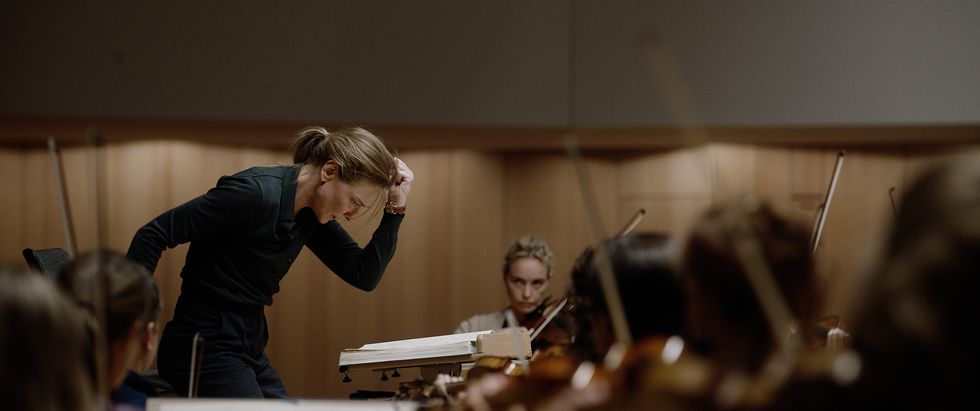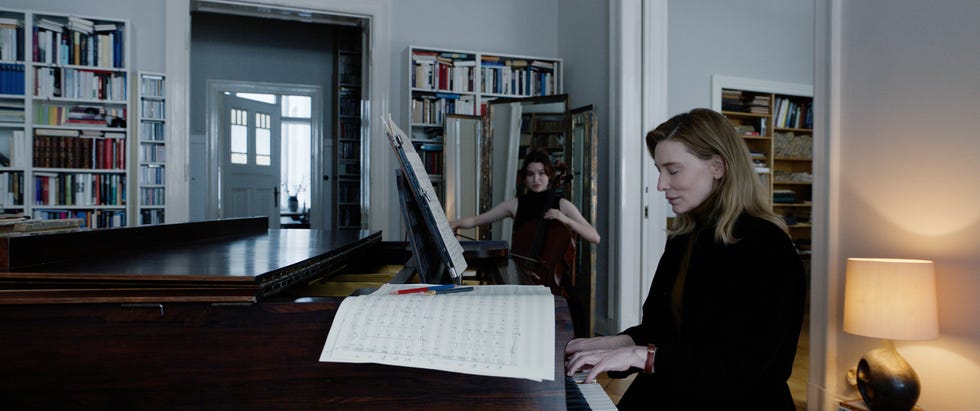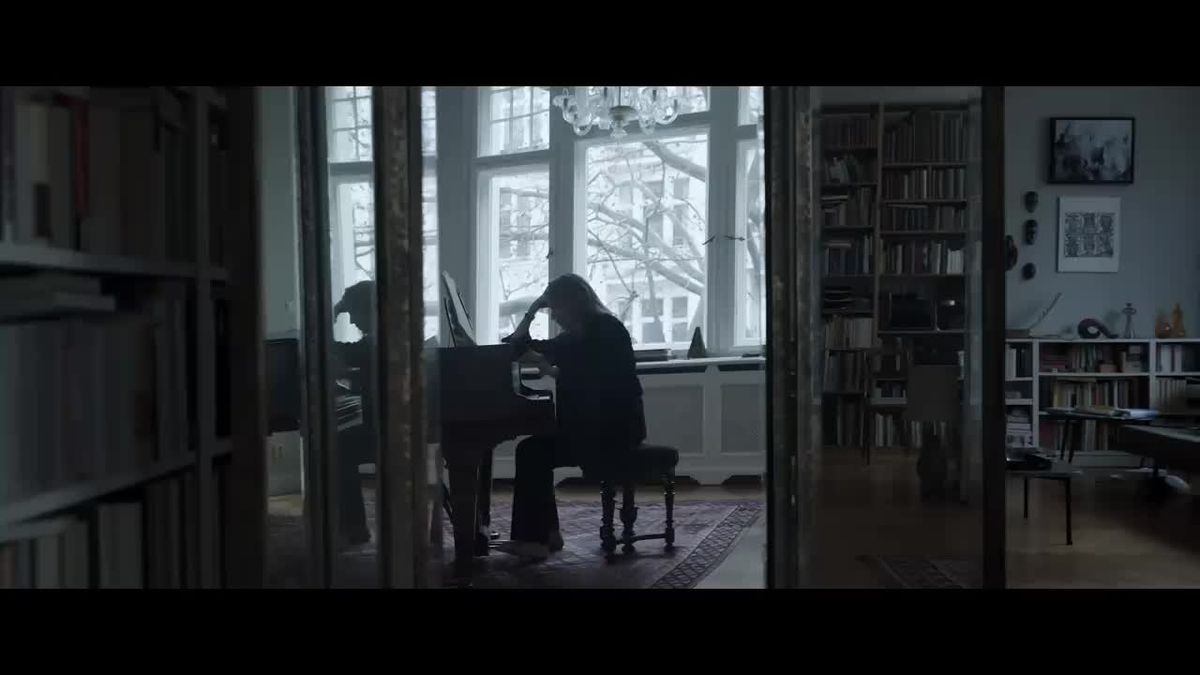Tár, a film full of jokes, saves its best for last. After more than two dizzying hours of personal and professional blows, the brilliant, terrifying, embattled conductor Lydia Tár (played by brilliant, terrifying, unembattled Cate Blanchett) can be seen in an unidentified Southeast Asian country (likely the Philippines), leading an orchestra for a live performance of Japanese videogame Monster Hunter in front of an audience of cosplayers. Phew! To paraphrase the words of another imperious blonde musician, does it sometimes feel like everyone is a sexy baby, and you’re the monster (hunter) on the hill?
The scene is so out-there that even if you have no idea what Monster Hunter is, you will most likely laugh at the end of writer-director Todd Field’s film, which is in cinemas now. At my screening, the sight of Lydia, an exacting, terrifying presence, performing in front of a crowd of fancy-dressed videogame fans, prompted loud, slightly-confused laughter. (Is it too late to announce that cinema is, in fact, back?) But delving into the joke, just this once I promise, is sort of fun, too.
For the uninitiated, Monster Hunter is a role-playing game in which you hunt a variety of monsters in a (rather drab looking, in my opinion) fantasy land. Does that sound like fun to you? It certainly sounded like fun to some people: since the game’s original release in 2004, the franchise has sold over 80 million copies worldwide. Perhaps it’s not hard to understand the appeal of a game in which you, a normal person, becomes a powerful being capable of taking down monsters.
Paying money to experience a live orchestral version of the game’s soundtrack, as depicted in Tár, may be harder to fathom. And yet, these not only exist but are popular. I have not been, but I have seen photographic evidence of such events, in which an orchestra plays music from the Monster Hunter soundtrack* – hits include “Quest Failed”, “Returning from an Expedition” and “Main Menu” – while game visuals are displayed onstage. In Tár, the audience cosplay as characters from the franchise. This happens in real life, too.
This may all sound pretty weird – it sounds pretty weird to me – but The Monster Hunter Orchestra Concert has been held annually in Japan since 2009, and it is livestreamed to different countries, including the UK. Why not? People watch live orchestral versions of The Lord of the Rings, Harry Potter and The Muppets Christmas Carol. And before you get too sniffy about videogame soundtracks, some are fairly well-regarded; Christopher Tin’s song for Civilisation IV, “Baba Yetu”, even won a Grammy.
So, what are we supposed to do with this ending? Lydia Tár is not, despite some what some viewers thought, a real person (there are many clues to this fact, though the main indicator is that Tár is often too interesting to be a biopic). The ending, however, feels very real. For some time now, the post-cancellation route for celebrities has looked a little like this: move to another country, find work, (try to) stay quiet. Lydia, whose birth name we learn is Linda Tarr, is more isolated than ever, without her wife (played by Nina Hoss), daughter, assistant (Noémie Merlant), and colleagues (she is usurped in Berlin by a conductor, played slimily by Mark Strong). But she has her work. That she is conducting a live performance of a game called Monster Hunter, when she herself has spent most of the film running from allegations of abuse, is delicious.
What any of it means, besides being funny, is up for grabs: Field happily does not reach a definitive conclusion on Lydia. All we know is that a live orchestral version of Monster Hunter is not a live recording of Mahler’sSymphony No. 5 at the Berlin Philharmonic, the career highlight she had been working towards. Is the point that, if you do awful things (in Lydia’s case, ruin a young woman’s life and manipulate everyone in her vicinity), you end up in a foreign country, your career in tatters? Does being a bad person mean you should be banned from creating the art you want to make (and are celebrated for)? Is conducting an orchestra for a much-loved videogame soundtrack – which means a lot to a lot of people – even a professional low-point?
Like all the best films, Tár asks more questions the more you think about it. The ending is a good Rorschach test: whether you view Lydia’s new job as an unnecessary loss to the world of classical music, a not-entirely-terrible gig, or an appropriately horrible fate for a horrible person, says a lot about what you value in art, and in life.
‘Tár’ is out now in cinemas
*I listened to Monster Hunter: World Original Soundtrack as I wrote this, and can confirm the 3 hour 15 minute-long album is compelling enough to make me feel like I was hunting some dragon-looking thing in a field instead of hunched unhealthily over a laptop.
Henry Wong is a senior culture writer at Esquire, working across digital and print. He covers film, television, books, and art for the magazine, and also writes profiles.














